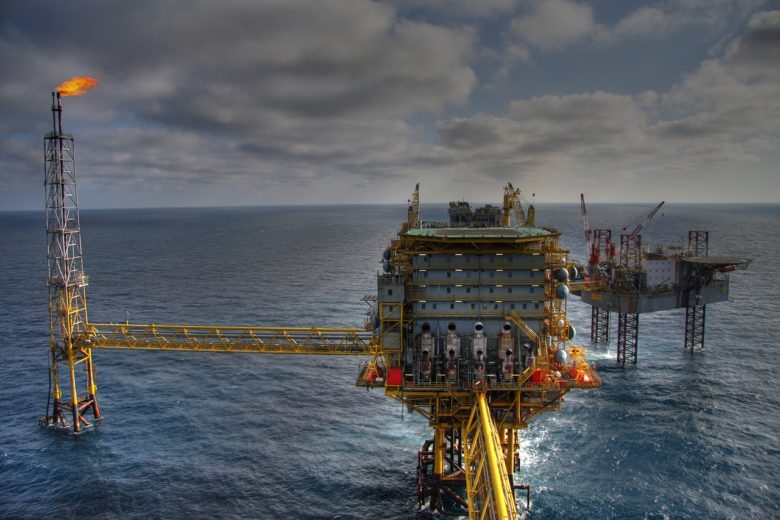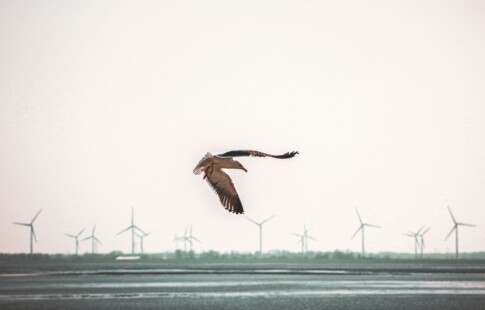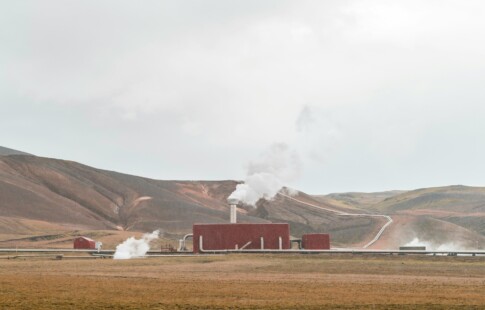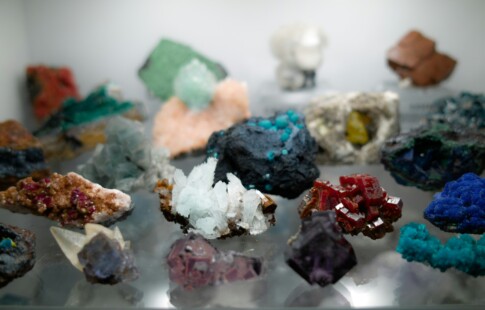
What Are the Environmental Impacts of Offshore Drilling?
We are reader-supported. When you buy through links on our site, we may earn affiliate commission.
Offshore drilling involves extracting oil from reserves located beneath the sea rather than on land. There’s also what’s known as deepwater drilling, where the necessary equipment reaches depths of at least 1,000 meters. Offshore drilling is complicated, but its supporters assert it’s an essential process due to the world’s continued dependence on fossil fuels. But what are the environmental effects of offshore drilling?
It Disrupts Marine Creatures
Offshore drilling disturbs ocean life even before the extraction begins. That’s because one of the earliest parts of the process requires seismic surveying. It bounces sound waves off underwater objects, such as rocks. The goal is to determine the possible location and size of underwater oil wells. The accompanying seismic blasts that create the sound waves happen when operators use air guns in the prospective drilling locations.
Research indicates seismic surveying activity causes fish to move away from the sites. The possible long-term ecological effects of such migrations are not yet apparent. Scientists also discovered that the varying depth and shape of the ocean floor could make each blast have different impacts
.Another study found that seismic surveying sounds affect humpback whales up to 3 kilometers away — nearly 2 miles. Another worrisome aspect is that offshore drilling companies only must evaluate the immediate effects of the blasts. Imagine a situation where seismic blasts cause extra stress for an ocean-dwelling creature that’s already dealing with extreme hardships. The additional stress could contribute to premature death.
Oil Spills Harm Other Wildlife
With the rise of offshore drilling comes the increase in disasters like oil spills and explosions. Those catastrophes require substantial cleanup efforts and harm other kinds of wildlife that don’t solely live in the ocean. For example, if oil coats the feathers of birds, they could lose the natural ability to keep themselves warm.
Also, the BP oil spill posed dangers to beach mice. If the rodents ingest the oil or associated balls of tar, they’re at risk for tumors and impaired immune systems. That same oil spill polluted more than 1,000 linear miles of shoreline, including the mangroves and marshes many nesting birds call home.
Oil Rigs Leak More Methane Than Anticipated
Methane is a type of greenhouse gas that leaks from operating oil rigs. A recent study published by Princeton University found that the rigs drilling for oil and gas in the North Sea emitted more methane than analysts previously estimated. It was 0.19% more than expected, equalling the amount of methane expelled by 330,000 more cars on the road.
The researchers concluded that their findings make it all the more necessary to engage in careful monitoring and analysis of methane leakage. Opportunities for environmental engineers to create methods that keep leakage to a minimum may exist, especially since pollution reduction is one of the key areas of focus for engineering professionals.
Dismantling Oil Rigs Could Cause Further Disruption
When it’s time to take oil rigs apart after completing the drilling intended for a given area, environmental activists sometimes run into a dilemma. Ongoing research suggests that although bringing oil drilling equipment to a place has detrimental effects on the surrounding wildlife, removing it could also cause harm. Scientists believe that, in some cases, oil rigs can help sustain the marine ecosystem.
That’s because some marine creatures start treating the oil rigs as artificial coral reefs. Also, human-made structures attract some types of marine life, making them more likely to congregate around the platforms. Concerned people point out that removing longstanding oil rigs disturbs the ocean and its inhabitants again.
However, three rigs in the North Sea that may stay in place reportedly have 11,000 tons of oil and toxins contained within the sediment inside them. The long-term effects of leaving the equipment in place may overshadow the expected advantages to the creatures that began living on or near it. As such, oil companies should always compare and contrast the effects of leaving a rig in place or taking it away while thinking of the impact on marine life.
The Rigs Interfere With Native and Migratory Bird Activities
Sometimes features on the oil rigs are to blame for adverse environmental consequences. For example, research indicates that artificial lighting can have a range of effects on native and migrating birds. The most common issues occur when they become attracted to the lights and collide with them. These effects can cause the deaths of hundreds or thousands of birds.
Moreover, the rigs can scare the birds away from their usual feeding sites or increase the likelihood of oil exposure These possibilities clarify why oil rig operators must consider all the effects on the environment before deciding where to deploy a rig.
What’s the Future of Offshore Drilling?
Given these environmental effects, as well as others not mentioned here, you might be wondering if offshore drilling is falling out of favor while the oil and gas industry looks for other options. There’s no clear-cut way to answer that. The Trump administration has rolled back many Obama-era initiatives to protect the environment, and in 2018, President Trump announced plans to expand offshore drilling.
However, those intentions have since encountered friction. In September 2019, members of the U.S. House of Representatives voted to prevent offshore drilling from happening along U.S. coasts. That move showed their opposition to Trump, even if the vote doesn’t succeed in the Senate.
Additionally, a recently enacted law in New Hampshire bans offshore drilling in the state. Maine and Massachusetts enforced similar laws. New Hampshire also forbids the development of on-shore facilities that complement offshore drilling projects.
Offshore Drilling Cannot Continue Without Mitigating the Environmental Effects
People are starting to become more aware of the environmental hazards associated with offshore drilling. Similarly, lawmakers have tuned into the public sentiment, and some have taken action. As oil companies continue to encounter this pushback, they may be forced to investigate other methods or drastically change their business models to be more environmentally responsible and respectful.
Share on
Like what you read? Join other Environment.co readers!
Get the latest updates on our planet by subscribing to the Environment.co newsletter!
About the author

Jane Marsh
Starting from an early age, Jane Marsh loved all animals and became a budding environmentalist. Now, Jane works as the Editor-in-Chief of Environment.co where she covers topics related to climate policy, renewable energy, the food industry, and more.





